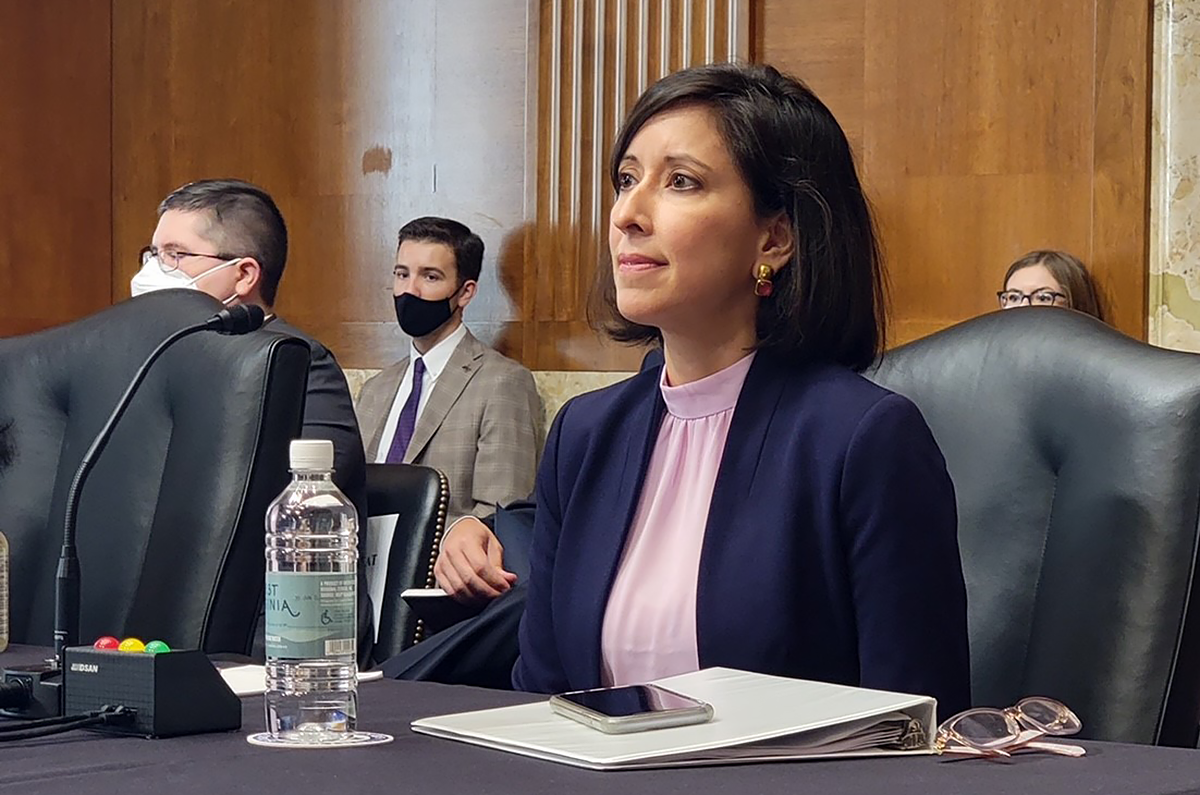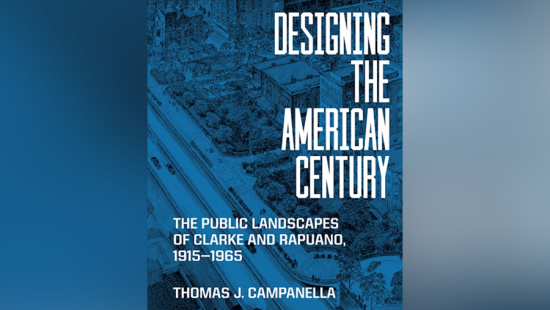Cornell AAP Professor Sara Bronin Confirmed by U.S. Senate as Chairman of the Advisory Council on Historic Preservation
Appointed by President Biden, Bronin will lead the agency that promotes the preservation, enhancement, and sustainable use of national historic resources and advises the President and Congress on federal historic preservation policy.

Professor Sara Bronin at a Senate Committee meeting in 2021. image / provided
Cornell AAP Professor Sara C. Bronin, a leading voice on historic preservation law and related land use practices, was confirmed as chairman of the Advisory Council on Historic Preservation (ACHP) by the U.S. Senate on December 22, 2022. She was initially nominated by President Joe Biden in June 2021 and renominated in January 2022. Bronin will be on leave from her position at Cornell beginning January 31 and continuing through the duration of her appointment.
During testimony before the Senate Committee on Energy and Natural Resources on her nomination in 2021, Bronin outlined her priorities. "My passion for preservation comes from the recognition that historic, tribal, and cultural resources benefit us in unique ways," she explained. "They connect us with our past and give us a sense of continuity, identity, and belonging. They generate economic activity, both during rehabilitation projects and for many years after. They offer us a chance to be more sustainable. And perhaps more importantly, they guide our faith and center our spirits. Throughout my work, I have tried to ensure that communities of all kinds can benefit from preservation. I have found that there are many people who share our common commitment to protecting and celebrating the rich and complex stories that make us American."
A Mexican-American architect and attorney, Bronin joined the College of Architecture, Art, and Planning (AAP) in July 2021 as a Professor in the Department of City and Regional Planning, as well as an associated member of the faculty of the Cornell Law School. She also leads AAP's Legal Constructs Lab, which conducts interdisciplinary research on how law and policy can foster more equitable, sustainable, well-designed, and connected places.
Following her confirmation, Bronin reflected on the impact leading the ACHP will likely have on her future work at Cornell. "This once-in-a-lifetime opportunity to serve the public in this role will give me a deeper understanding of the workings of federal preservation policy. My service will ensure I return to Cornell a more knowledgeable — and valuable — member of the faculty," she said. "I especially look forward to returning to teach Historic Preservation Law, a cross-listed class that attracts students in law, historic preservation, planning, and urban studies."
Bronin is also mindful of the insight her experience, including her recent work with students at Cornell, will offer her in Washington, DC.
"With some help from historic preservation graduate students and law students in my Legal Constructs Lab, I have just completed a book chapter on the state of research in local, state, and federal historic preservation law. We found very little research on their scope and impact," Bronin observed. "As Chair of ACHP, I am hoping to convene students from Cornell and other academic institutions to try to advance research which can, in turn, improve policy-making at the ACHP and across the federal government. This research will build on work my lab team has contributed to, including work on heritage-related federal disaster policy, the legal notion of "integrity" embedded in federal law, and federal preservation standards that could do more to enhance sustainability."
In addition to her research and public service work related to historic preservation with organizations such as Preservation Connecticut, Latinos in Heritage Conservation, and the National Trust for Historic Preservation, Bronin has written extensively on topics such as renewable energy, climate change, housing, urban planning, transportation, real estate development, and federalism. She created the National Zoning Atlas to translate and standardize tens of thousands of zoning codes across the country, and that project, which now includes more than three dozen institutions working across sixteen states, will continue to make headway in her absence.
"Through generous philanthropic support, four full-time staff (with more to come) and students in my lab will be working to make progress on the atlas while I am on leave," Bronin noted. "As it is completed, that project will illuminate how many local decisions affect our communities, including our historic places."
Stay connected! Follow @cornellaap on Instagram, Facebook, Twitter, and LinkedIn; subscribe to our AAP bi-weekly newsletter.







